Blog
Healing Rotator Cuff Tears with SoftWave Tissue Regeneration Technology: A Non-Invasive Solution with Dr. John Grassam
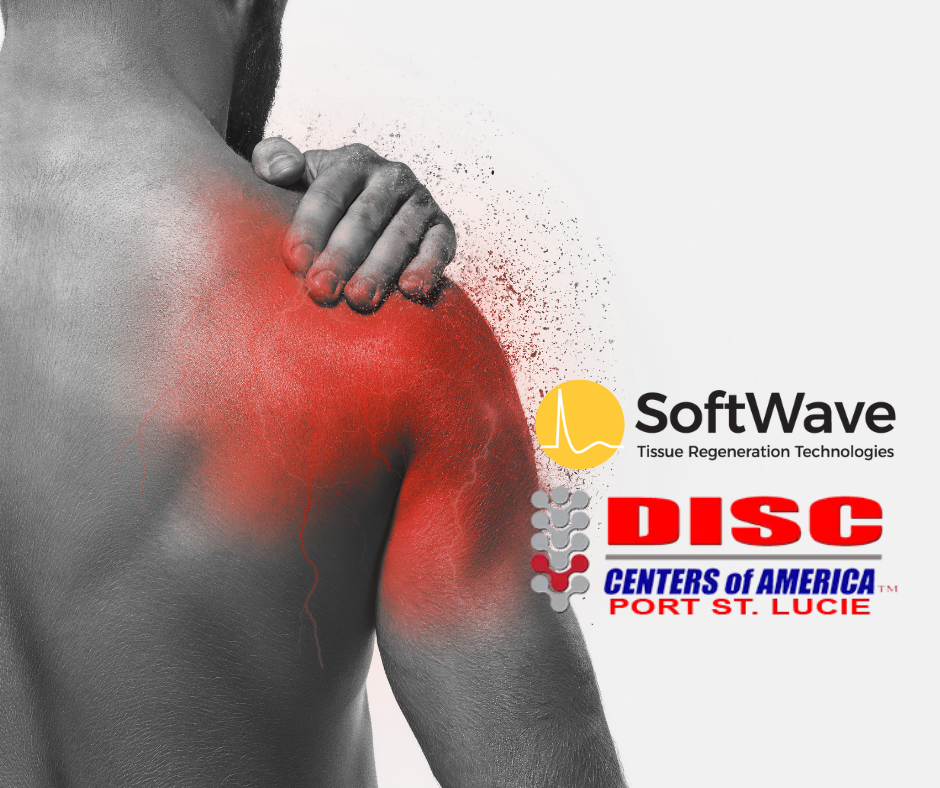
Rotator cuff tears are one of the most common injuries affecting the shoulder, often causing significant pain, weakness, and limited mobility. Whether from overuse, injury, or wear and tear, a rotator cuff tear can make everyday tasks and physical activities difficult. Fortunately, SoftWave Tissue Regeneration Technology offers a non-invasive, drug-free solution to help repair and regenerate damaged tissues, providing long-term pain relief and improved function. At Disc Centers of America - Port St. Lucie, Dr. John Grassam uses SoftWave Therapy to help patients recover from rotator cuff injuries, promoting tissue repair and restoring mobility.
In this blog, we’ll explore the anatomy of the shoulder, the role of the rotator cuff, and how SoftWave Therapy can help treat rotator cuff tears effectively.
Understanding the Anatomy of the Shoulder
The shoulder is a complex joint made up of three bones:
- The humerus (upper arm bone)
- The scapula (shoulder blade)
- The clavicle (collarbone)
The shoulder joint is unique because it allows a wide range of motion, but this flexibility also makes it prone to injury. The rotator cuff is a group of four muscles and their tendons that play a key role in stabilizing the shoulder and allowing smooth movement. These muscles and tendons help lift and rotate the arm while keeping the head of the humerus properly seated in the shoulder socket.
The Four Muscles of the Rotator Cuff:
- Supraspinatus: This muscle is located at the top of the shoulder and helps lift the arm away from the body.
- Infraspinatus: Located at the back of the shoulder, this muscle assists in rotating the arm externally.
- Teres Minor: This muscle works alongside the infraspinatus to rotate the arm outward.
- Subscapularis: Located at the front of the shoulder, this muscle helps rotate the arm internally.
Together, these four muscles and their tendons form the rotator cuff, providing stability and facilitating a wide range of movements.
What is a Rotator Cuff Tear?
A rotator cuff tear occurs when one or more of the tendons that attach the rotator cuff muscles to the humerus are torn or damaged. These tears can range from partial tears, where the tendon is frayed, to full-thickness tears, where the tendon is completely severed from the bone.
Common Causes of Rotator Cuff Tears:
- Overuse or repetitive motion: Repeated overhead activities, such as throwing or lifting, can wear down the rotator cuff tendons over time.
- Injury or trauma: Falls, accidents, or heavy lifting can lead to an acute tear of the rotator cuff.
- Degeneration with age: As we age, the tendons in the shoulder can naturally weaken, making them more susceptible to tears.
Symptoms of a Rotator Cuff Tear:
- Pain in the shoulder: Often felt when lifting the arm, reaching overhead, or lying on the affected shoulder.
- Weakness: Difficulty lifting or rotating the arm due to a loss of strength.
- Limited range of motion: Stiffness and difficulty moving the shoulder through its full range of motion.
- Popping or clicking: Sensations within the shoulder joint during movement.
If left untreated, rotator cuff tears can worsen over time, leading to chronic pain, reduced mobility, and increased risk of further injury.
How SoftWave Tissue Regeneration Technology Helps Heal Rotator Cuff Tears
SoftWave Therapy is a breakthrough treatment that uses supersonic acoustic waves to promote natural healing, stimulate tissue repair, and reduce pain. For patients with rotator cuff tears, SoftWave Therapy offers a non-invasive alternative to surgery or injections, helping to restore the function of the shoulder by promoting the body's own regenerative processes.
1. Stimulating Stem Cell Activity and Tissue Regeneration
One of the most exciting benefits of SoftWave Therapy is its ability to activate the body’s resident stem cells, which play a critical role in repairing damaged tissues. During treatment, the acoustic waves stimulate the migration of these stem cells to the damaged tendons of the rotator cuff, promoting:
- Tendon repair: SoftWave Therapy encourages the regeneration of the torn tendons, allowing them to heal and reattach to the bone.
- Tissue regeneration: The acoustic waves promote the repair of damaged tissues within the shoulder, improving overall joint health and function.
By supporting the body’s natural healing processes, SoftWave Therapy helps restore the integrity of the rotator cuff and promotes long-term recovery.
2. Reducing Pain and Inflammation
Rotator cuff tears are often accompanied by inflammation, which can cause significant pain and discomfort. SoftWave Therapy works to modulate inflammation by promoting the release of anti-inflammatory molecules and reducing the production of pro-inflammatory cytokines. This helps:
- Reduce pain: Many patients experience immediate pain relief during or after their first SoftWave session.
- Improve mobility: As inflammation subsides, patients regain range of motion and flexibility in the shoulder, making it easier to move and perform daily activities.
By addressing the root causes of pain and inflammation, SoftWave Therapy provides lasting relief from the discomfort associated with rotator cuff tears.
3. Accelerating Recovery and Preventing Re-Injury
Recovering from a rotator cuff tear can be a lengthy process, but SoftWave Therapy helps accelerate recovery by promoting faster tissue repair and regeneration. The acoustic waves improve blood flow to the injured area, delivering essential oxygen and nutrients needed for healing. This helps:
- Speed up recovery time: Patients often experience quicker recovery compared to traditional treatments.
- Strengthen the rotator cuff: SoftWave Therapy strengthens the healing tendons, reducing the risk of re-injury and helping patients return to their normal activities sooner.
For athletes or individuals who rely on their shoulder strength for work, this faster recovery is particularly beneficial in getting back to full function.
Why Choose SoftWave Therapy for Rotator Cuff Tears?
SoftWave Therapy offers several benefits for patients suffering from rotator cuff tears:
- Non-surgical and drug-free: SoftWave Therapy is a natural treatment that avoids the risks and downtime associated with surgery or medications.
- Long-lasting results: By promoting true healing and tissue regeneration, SoftWave Therapy provides long-term relief and improved shoulder function.
- Fast pain relief: Many patients experience a reduction in pain after just one session, allowing them to return to their daily activities with less discomfort.
Whether you’re recovering from an acute rotator cuff tear or dealing with the long-term effects of a degenerative tear, SoftWave Therapy offers a safe and effective solution for healing and regeneration.
Experience Relief from Rotator Cuff Tears with SoftWave Therapy at Disc Centers of America - Port St. Lucie
If you’ve been diagnosed with a rotator cuff tear and are seeking a non-invasive solution to relieve pain and promote healing, SoftWave Therapy at Disc Centers of America - Port St. Lucie can help. Dr. John Grassam and his expert team are here to guide you through your recovery and help you regain full use of your shoulder.
Contact Us Today for SoftWave!
Ready to start your journey toward pain relief and healing with SoftWave Therapy? Contact Disc Centers of America - Port St. Lucie today to schedule your consultation with Dr. John Grassam.
Disc Centers of America - Port St. Lucie
555 NW Lake Whitney Place, Ste. 105
Port St. Lucie, FL 34986
Phone: 772-237-2080
Visit us at: https://portstluciedisccenter.com
Request an appointment here: https://www.softwaveportstlucie.com/contact
Let us help you recover from rotator cuff tears, reduce pain, and restore shoulder function with the power of SoftWave Therapy!
‹ Back
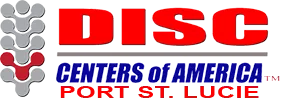



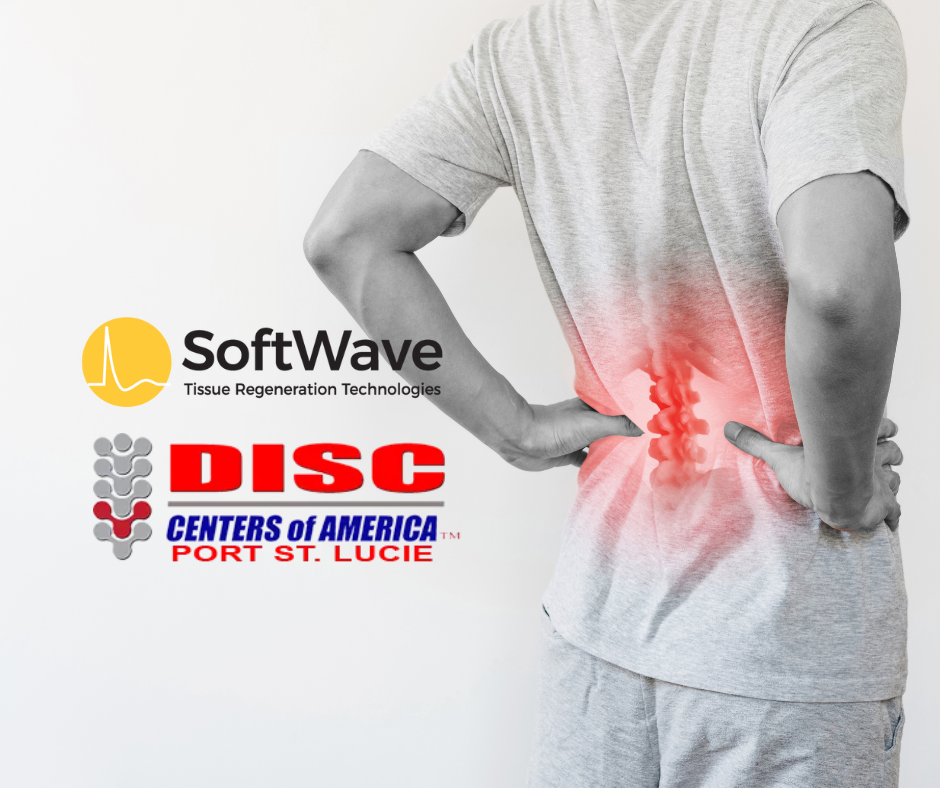
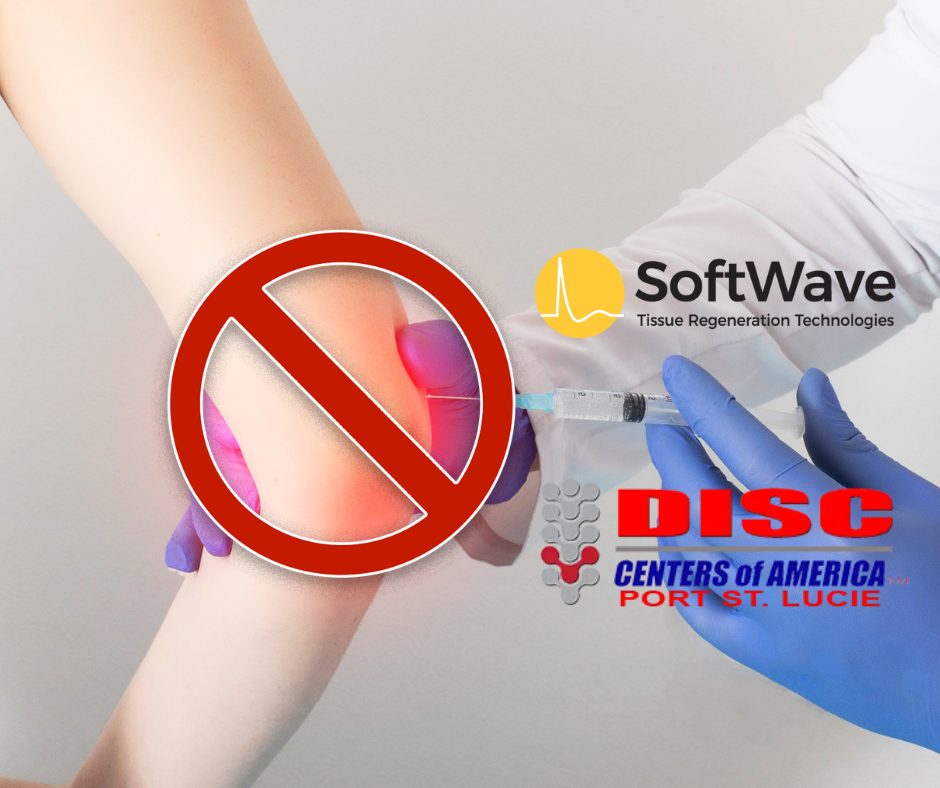
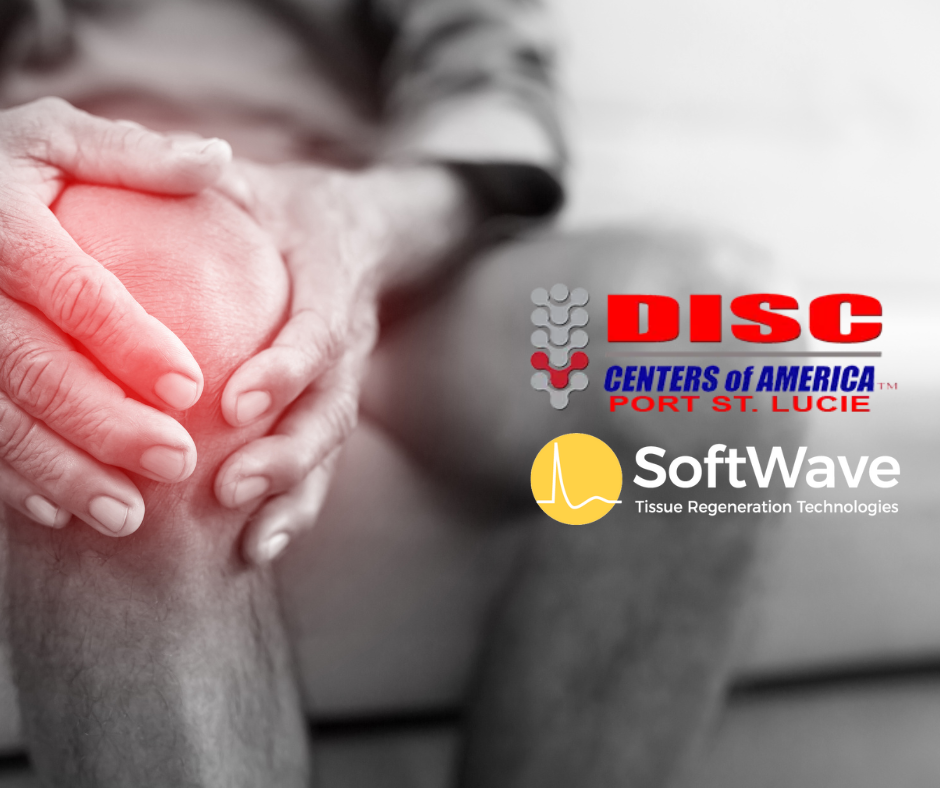

 555 NW Lake Whitney Place Ste. 105
555 NW Lake Whitney Place Ste. 105